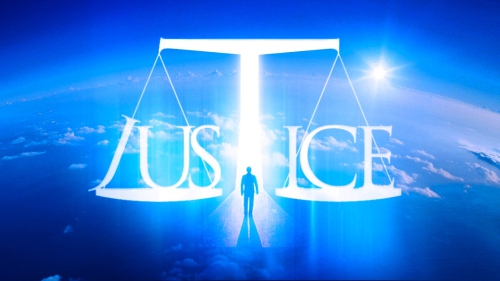Muftis and Fatwas: Interpreting Islamic Law

In Muftis, Fatwas, and Islamic Legal Interpretation, Muhammad Khalid Masud describes the formative period of Islamic legal scholarship, with a specific focus on the history of ifta'. The first legal rulings were issued by the Prophet in his role as intermediary between God and the Muslims. The form in which these legal commands were revealed takes into account the fact that the Islamic model instituted by the Prophet
reflected, in some respects, a drastic departure from previous Arab customs while in other areas, the Islamic response built upon existing customary practices. Because of this relationship between pre-Islamic customs and the new Islamic legal structure, many Qur'anic legal commands were revealed as a result of individual members of the Prophet's community approaching him for "clarification regarding the continuing validity of a certain practice."
After the Prophet's death, when direct access to divine revelation was no longer available, Muslims turned to the Prophet's
closest Companions for guidance. Fatwas at this point in Islamic history took the form of the Companions commenting on how the Prophet
approached a certain issue. When the generation of the Companions died out, Muslims came to rely on hadith, which were linked to the Prophet
through their isnad. Those who mastered these hadith, the 'ulama, became in the second Islamic century the means by which to receive religious guidance on specific issues. As the Islamic Empire expanded and sophisticated state control became increasingly necessary, legal scholarship-as the basis of state legitimacy-took on a similarly bureaucratic nature. Whereas "futwa began as a private activity that was independent of state control," it became increasingly formalized, culminating in the creation of the four Sunni madhhabs and Shi'i Jafari madhhab, each of which compiled its own "fatwa collections."
Perhaps the most formalistic of these schools of law was the Shafi'i school, whose development of usul al-fiqh is described in greater detail by Marshall Hodgson than by Masud. In the first volume of The Venture of Islam, Hodgson describes al-Shafi'i's purpose in developing usul al-fiqh in terms of reducing the role of ra'y (arbitrary and personal judgment) in legal decisions:
Al-Shafi'i's method was intensely factualistic, allowing almost no leeway for private fancy. He based his method on quite concrete events: the coming of certain words to certain people under certain conditions; and the meaning of these events must depend on the exact meaning of those words to those people under those conditions. (He noted ... how important it was to have an exhaustive knowledge of the nuances of the Mudari Arabic grammar of Muhammad's time.) Thus, he gave full recognition to the intensely historical nature of the revelation that had launched Islam; though not ... to the continuingly historical nature of the reception of that revelation in the community committed to it. (330)
In light of Hodgson's description of usul al-fiqh as a formalistic, mechanical means of extracting rulings from the corpus of religious material, the various fatwas described in Islamic Legal Interpretation seem at odds with the process (usul al-fiqh) by which these rulings are to be deduced. As Wael Hallaq explains in "Ifta' and Ijtihad in Sunni Legal Theory: A Developmental Account", although fatwas are not always products of usul al-fiqh, for much of Islamic history, muftis were expected to also be mujtahids instead of muqallids. As social circumstances changed and it became increasingly difficult to train qualified mujtahids, the requirement that muftis also be mujtahids fell away. Still, if a mufti issues a novel legal interpretation, it must-even today -be based on ijtihad, which relies in large part on usul al-fiqh.
However, the apparent lack of rigidity in the fatwas described in Islamic Legal Interpretation suggests that something other than strict formalism is at work. This is not to say that the muftis are not employing usul al-fiqh; rather, it seems like their jurisprudential methodology is different in nature from the usul described by Hodgson. For example, in "Mut'a: Regulating Sexuality and Gender Relations in Post-Revolutionary Iran", Shahla Haeri describes the various political and ideological issues that cause most Shi'i 'ulama in Iran to permit, and at times promote, temporary marriage. One such ideological factor is the Sunni and, separately, modernist condemnation of mut'a as immoral and antithetical to women's dignity. In response to anti-Shi'i sentiments by Sunnis and modernizing efforts by the pre-revolutionary regime of Mohammad Reza Shah, Shi'i 'ulama held up mut'a as "one of the most 'brilliant' laws of Islam" and defended this statement by describing the various social and psychological benefits of not forcing young people to remain "ascetic" until they were ready for permanent marriage.
The pro-mut'a fatwas therefore took into account various socio-political elements and, as such, were based on something other than the "exact meaning" of "certain words" as they were interpreted by "certain people under certain conditions." (Hodgson, 330) A similar incorporation of contextual factors is evident in "Caliphal Legitimacy and Expiation in al-Andalus", where Maribel Fierro describes the classical 'ulama's rulings regarding a caliph's expiation for breaking his Ramadan fast unjustifiably.
How can this interpretational fluidity be reconciled with the formalism of usul al-fiqh? Most muftis would argue that they are following traditional tools of usul, such as istihsan (equity), maslaha (public interest), and sadd al-dhara'i (to block the ways possibly leading to undesired consequences). Maslaha, for example, allows scholars to adopt socially useful rules that may not be explicitly sanctioned by the texts of the Qur'an and hadith. As Masud explains, maslaha is seen as a way of interpreting "existing rules by disengaging the spirit of these rules from the letter; exceptions and extensions are reached which command practical utility and correspond to the fundamental goals of the law." Like sadd al-dhara'i and istihsan, maslaha is used to avoid undesirable or absurd results of formalistic interpretation.
Because these concepts are seen as tools of usul, they, like other jurisprudential principles, are thought to help the muftis "discover" the true or right ruling. As Sherman Jackson explains, however, this assumption is incorrect. Maslaha, for example, may facilitate the imposition of a mufti's ideological notions of what is right or what is in the public interest, and it would allow this imposition to occur in the guise of systematic application of the "spirit" of existing laws. The critique offered by Jackson is that of new legal realism-that is, muftis, like common law judges, are purporting to discover the best rule whereas in actuality it is their own ideological presuppositions that are determining which result they reach. Legal formalism is not a value-neutral, mechanical means of deducing the "truth." Instead, formalism serves to constrain, validate and provide rhetorical force to the decision maker's presuppositions.
Although the legal realist critique, as applied to Islamic law, does not invalidate the rulings themselves, it does require that muftis acknowledge that they are doing more than merely deducing rules. As Jackson emphasizes, a mufti's incorporation of socio-cultural and ideological elements into his/her judgments does not necessarily make his/her rulings wrong or fraudulent. Rather, it points to the fact that the ruling may suppress or downplay certain approaches to the problem while highlighting others. Moreover, in many cases, some of the alternative approaches ignored by muftis in their process of deduction may be as legitimate as the approach the mufti in fact uses. Jackson, for example, uses a ruling of Imam al- Juwayni to make this point: "Al-Juwayni availed himself of a rhetorical force supplied by usul al-fiqh and the legal master narrative in order to drown out certain questions, sources and inconsistencies and to engender certain associations in the mind of his reader in order to make his legal cum practical argument stick."
In "When Women Went to Mosques: al-Aydini on the Duration of Assessments", A. Kevin Reinhart makes this point more concrete when he discusses the relationship between the 'illa (effective cause or rationale) of a rule and the hukm (assessment) of the situation at issue. He explains that the " 'illa stands at the center of shari'a epistemology" because analogies are drawn between a given, known prohibition and new situations on the basis of a shared 'illa. For example, the Qur'an prohibits the drinking of wine but does not specify the reason wine is prohibited. Jurists sifted through the various properties of wine and deter-mined that wine is impermissible because of its intoxicating effect. On the basis of this 'illa, jurists extended the prohibition to other intoxicants, such as another fermented drink called "nabidh."
As Reinhart points out, however, "there is no objective procedure" for determining which characteristic of wine serves as its 'illa: "Why should the rationale for prohibiting (wine) be that it is intoxicating and not, rather, that it is a product of the grape? More important, how can a jurist be certain that it is the 'illa of (wine) that best applies to nabidh, and not the permissibility of water, or the implicit permissibility of things unmentioned in Revelation?"
This uncertainty, however, is not necessarily problematic. The choice among various 'illa and the relationship between the 'illa and the duration of any given assessment adds flexibility to Islamic law-a flexibility that can be utilized by both reformers and conservatives. A particular law stays in effect until it is determined that the 'illa is no longer maintained. The effective cause of a rule justifies that rule until social or other circumstances eliminate that rationale. If wine or nabidh, for example, were to all of a sudden lose their intoxicating effect, they would no longer be prohibited.
Although in Reinhart's case study (al- Aydini's ruling on women going to the mosque), the 'illa of a particular hadith was extended to novel situations in a way that was discriminatory toward women, the potential is there for other, more positive uses of 'illa. For example, in the case of al-Aydini, the hadith from which he extrapolated other rules "categorically condemned interference with women's attendance at the mosque." In other hadith, the Prophet allows menstruating women and other "young, vulnerable or unmarried women who ordinarily are kept from public view" to attend the Islamic liturgical events as long as they stayed away from the place where other women prayed. This latter hadith suggested to the founders of the Sunni and Shi'i madhahib that because women's attendance to religious events was restricted "during their periods of ritual disorder," the restriction could be extended "to women who might be occasions of public disorder." "A later generation of scholars" further extended this 'illa and "banned all women of whatever age from mosques on the grounds of possible 'deleterious consequences'."
In light of changing perceptions and roles of women, this 'illa is clearly outdated and reflects Jackson's concern about a mufti's imposition of his/her ideology on his/her fatwas in the guise of formalism. A reevaluation of the effective cause of this rule and other rules that from human rights or other modern perspectives may seem highly problematic may go a long way in reforming Islamic law. The legitimacy of this reform project is underscored by the fact that what is being reexamined in each case is not a mechanically deduced "truth," but instead a socio-cultural presupposition that shaped the process of 'ifta.
Asma Uddin: Associate Editor of Islamica Magazine.
References: Jackson, Sherman. "Fiction and Formalism: Toward a Functional Analysis of Usul al-fiqh." Studies in Islamic Legal Theory. Ed. Bernard Weiss. London: Brill, 2002; Masud, Muhammad Khalid. Shatibi's Philosophy of Islamic Law. New Delhi: Kitab Bhavan, 1997; Masud, Muhammad Khalid. Islamic Legal Interpretation: Muftis and Their Fatwas. Cambridge: Harvard University Press, 1996.
Topics: Fatwas (Religious Advice), Islamic Law (Sharia), Women
Views: 10149
Related Suggestions
first page of the Qur'an and see : "..there is no
doubt in it, a guidance for the pious.."
The real Mufti is in the heart of each believer-
hair-splitting legal deliberations are what ruined
the earlier communities.
Wasalam alaikun
It is not difficult to see from the article that the entire reasoning is the one western first and muslim latter
And isn't it convenient that the article pounds on the issues of wine and women in mosques (or modernization of women rights as seen by west) which to west are the hallmarks of freedom (thier idea). This is "SOCIAL ENGINEERING" in complex rhetorical garb.
And this seems to be written by someone who has no idea of qura'an or haven't read it for herself. Quran does give the reason in Al-Baqaray about intoxicants, gambling "Their bad effects outweighs their any benefits, and they are deeds of SATAN to sow seeds of hatred"
WHAT WETERN GROWN MUSLIMS OR WESTERNS cannot beleive is that ALLAH knows best about us and His Prohets (PBUH) words are inspired by ALLAH too. They think that they can logically argues and find any truth and decide for themselves. THAT is FAR FROM TRUTH. True Muslims when submit to ALLAH and His Prophet(PBUH) they acknowledge that ALLAH and Prophet (PBUH) knows best. They follow the Qura'an and Hadith to their best understandings.
Today Fatwas have become like a fashion because muslims (like the author) doesnot want to read Qura'an and Hadith for themselves..."ALLAH has said number of times that we have made Qura'an easy to understand.Is there anyone seeking guidance ?" Infact they use Fatwas to avoid following Qura'an instructions and Prophet's (PBUH) life example as it is against their concept of of Human rights or there sense of right and wrong ?
ARTICLES likes these makes me think that what author actually want to say is "We as intelligent and self-thinking beings can devise heir own laws and we don't want to beleive in some divine book or Prophet (PBUH) because (Ma'az-ullah) they lived in primitive times and couldnot have understood our hi-fi civilization"
May ALLAH guide us all and have mercy on us..Amin
I think the only reliable hadith is one that all of the schools agree on.
I thank the Almighty for The Quran. After 1400 years no one could mess with it.
Ultimately, as Allah (SWT) indicated in Quran that He Will Guide those who remain pious.
Do they have personal views sometimes, Yes they do, as they are persons - do they fear their Creator, (backed with all this knowledge) they should!
Why the examples are wine and rights of women - again? Think! Aren't those the issues, where they try to make us believe we are falling behind?! Even though women's rights have been written down 1400 ago for us!
This article is full of half-truth and superficial interpretation, seen through the eyes of a Western audience.
"After the Prophet's death, when direct access to divine revelation was no longer available".
So every Tom, Dick and Harry came p with explanations and we are supposed to adhere to all that for eternity? What happens to our own minds and hearts?
The Quran states, it is best to listen to what is being said and follow the best of it. We determine what is best through our minds and hearts.
Those who explain stuff are human beings and I am also a human being. Why must I obey what they say when I can think for myself and determine what is right? Its called individual responsibility.
The write goes on to state:
"For example, the Qur'an prohibits the drinking of wine but does not specify the reason wine is prohibited."
Quran does say so: "Do not attend prayer whilst intoxicated (or under the influence of alchohol)"
And 'Alchohol and Gambling are evil deeds, avoid them." Since Arabs to this day are not satisfied with couple of glasses but to devour the whole bottle and ask for more, one can clearly see that such an act leads catastrophe, be it health, family or society. The damage is far greater than one can imagine. So it is best to avoid it, especially if one can not control oneself. Clearly it leads to addiction and the same for gambling, where money should be spent on children's education, the father squanders it off on alchohol and gambling.
Do we need a mufti to tell us so??

















